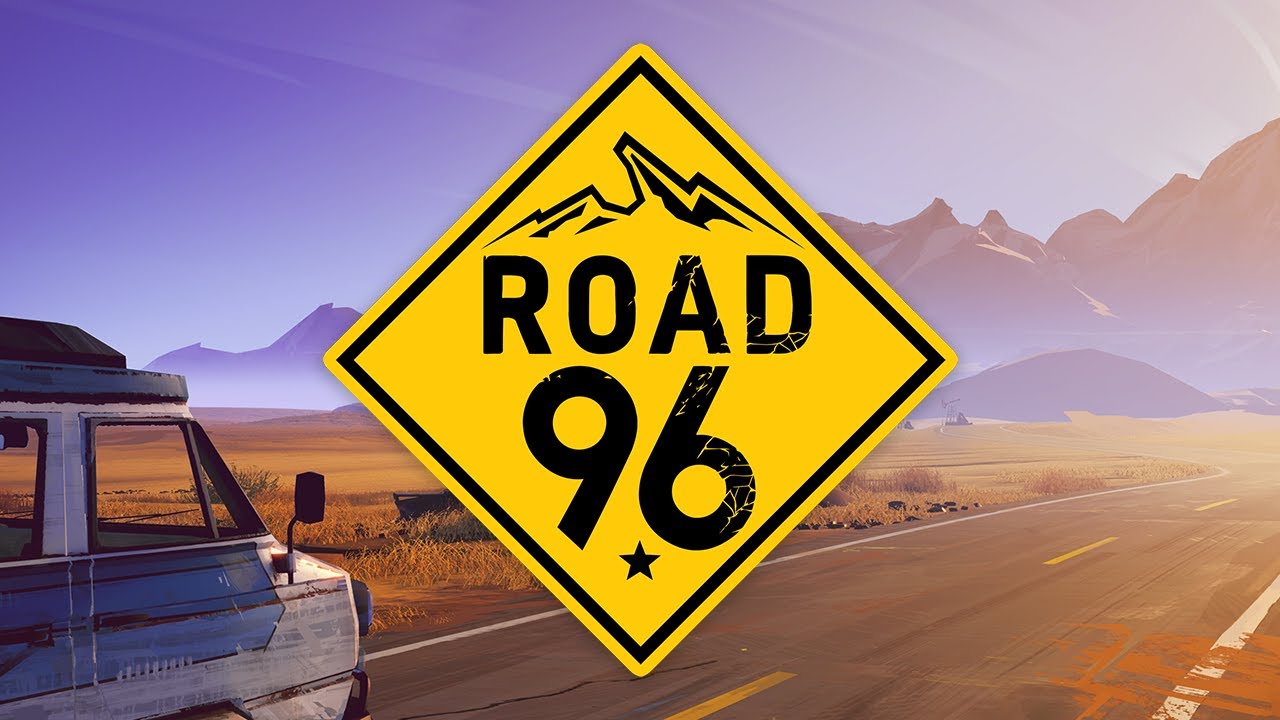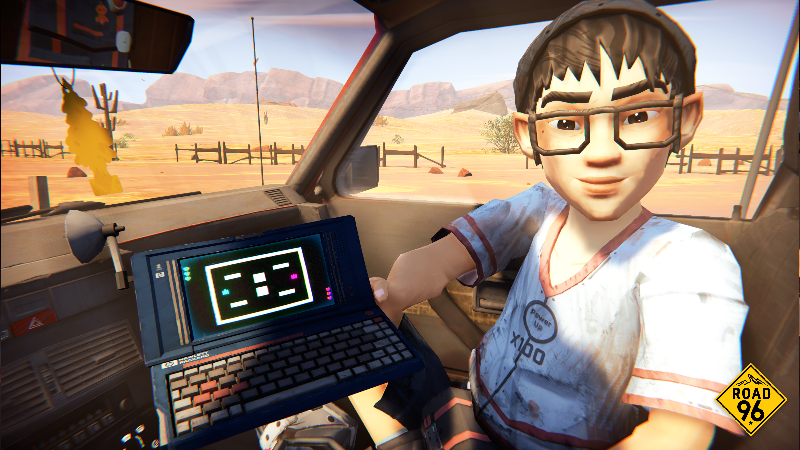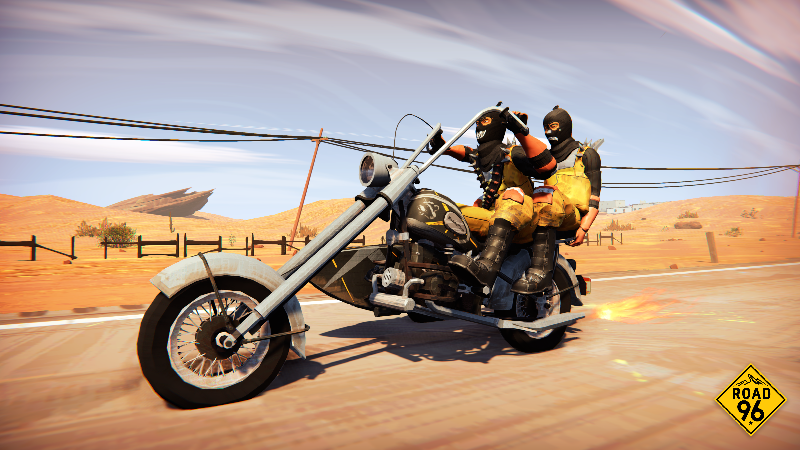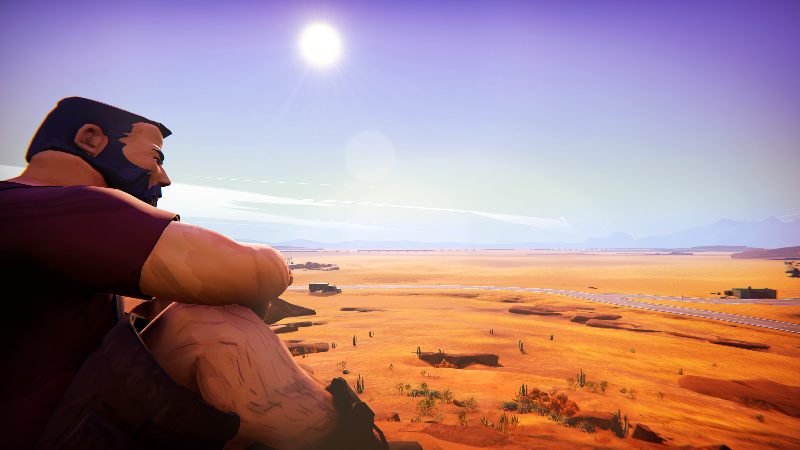One of the inherent freedoms of making an indie game is you get to be more honest about polarizing subject matter. While AAA titles often exploit political themes as shallow backdrops for gunfights, indie teams making games with political aspirations tend to be more open about their messaging.
Road 96 is a prime example of such a project. One cannot divorce its politics from its plot, though as a choose-your-own-adventure game, its message is sometimes a bit muddled anyway.
It seems the team at Digixart wants everyone to paint the world in their own political colors and see what sort of landscape comes about as a result. While the possible branches are impressively numerous, the scenarios sometimes feel contrived and adolescent.
Road 96 Review: The Walls That Divide Us
In Road 96, the nation of Petria is on the brink of a pivotal moment. Far right-wing President Tyrak is up for re-election, but his fascist idealogy has left the country in disarray, and as a result, many young people are flocking to the northern border hoping to cross in search of salvation. The road both literal and figurative is a harsh one, and not all teens will make it.
You take on the role of a half-dozen teens randomly generated with different stats, such as pocket money, health bar size, and miles from the border to start. From there, each episodic scene brings you face to face with one of several recurring side characters.
There’s a pair of bandits on a motorcycle hunting a killer. There’s a far-right news pundit oblivious to the seething hate some have for her. There’s a young girl making the trek the same as your cast of teens, and more.
Each scene is generated based on one part randomization and one part player agency. For example, if you elect to hitchhike, you may come upon a young hacker kid who is heading the same way as you. Alternatively, hailing a taxi may land you in the back seat of the cabbie with anger problems.
Each playable teen will meet several of these characters on their trip, and no two trips will ever be the same, not within a playthrough and, more impressively, not among players. These branching paths are always exciting to land in, at least at first. Sometimes the details of a situation may prove a bit silly on the backdrop of sociopolitical unrest.
In one situation, I was thrust into the role of cameraman for the state media pundit who was broadcasting live from the scene of a Tyrak speech, but I could undermine it by focusing on billboards and protesters supporting his opponent, Torres. Eventually, my subterfuge stirred the scene into an uproar, but the lasting effect of my actions was a slight uptick in support for the Torres ticket.
In another scene, I helped a long-haul trucker and resistance leader flirt with his star-crossed would-be girlfriend and state cop like Cyrano de Bergerac. It was cute, but not as poignant as it seemed to shoot for.
Each scene plays out with a similar format: an unpredictable obstacle lands proverbially at your feet, you work through it in a way that is both politically charged and uniquely gamified, before affecting change in the country as a whole in small but measurable ways.
As the story starts out a few months before the election, the game unabashedly says the right-wing candidate is the villain of the story, and the writers make it easy to avoid any controversy there when Tyrak is rounding up and killing teen border-crossers. It takes what could’ve been a nuanced political story about undermining fascism and turns it into a young adult novel of sorts, where personalities are over-the-top and everyone is drenched in their defining traits like the Power Rangers.
While Road 96‘s political aspirations falter more often than not, its human stories are much better told. That hacker is hellbent on sabotaging the Tyrak bid, but he’s also desperate for information on his birth parents who died in an alleged terrorist attack 10 years prior.
While the game wants to divide players on playing Cupid to the trucker and cop on political lines, I more so was drawn to their nomadic romance as a love story.
Making these connections better is how each story weaves into another. The deeper into the game you get, the more you see how these strangers are all more connected than they realize, and the dramatic irony of seeing that converge before the characters themselves is interesting and kept me playing Road 96 eager to see where it would all go.
Interspersed in each episode can be any number of mini-games from recording news footage to hacking to pseudo-stealth. For the most part, these scenes are essentially on-rails, with few fail states threatening your progress. But the variety of them is clever, and I felt like from both a story and gameplay perspective that there was plenty more to see on a second playthrough.
As an adventure game, Road 96 is first and foremost about the decisions you make. They’re often tough and just as often a bit silly, but the ones that feel the most genuine and heartfelt make Road 96 a success, even if it’s for reasons different than what Digixart seemed to focus on.
As an aside to the main attraction that is the game’s story, the music is often exceptional. An eclectic mix of songs can often be played on-demand in the game as players collect cassettes from characters, often as rewards. With a heavy dose of synthpop but a playlist from several artists and genres, Road 96‘s soundtrack is one of my favorites of the year.
Road 96 Review — The Bottom Line
Pros
- Interwoven episodic human drama
- Great soundtrack pulling from many artists and genres
- Subtle and obvious ways to alter the story both feel enjoyable
Cons
- Political drama often feels lost in contrived scenarios
- Muddles its message
Road 96 sets out to ask hard questions such as “when is violence the right response to a despotic regime?” and “is voting alone enough to fix a broken system?”. But by the end, it never quite manages to answer those questions. While its politics take center stage, it’s actually Road 96‘s interpersonal drama that I came away most fond of.
It’s the figurative walls the characters put up that feel more compelling than the story’s literal walls at the border, but because of the game’s adaptability, it’s worth setting off on your own road trip and seeing how Petria looks for you on election day.
[Note: Digixart provided the copy of Road 96 used for this review.]










Published: Aug 11, 2021 12:29 am